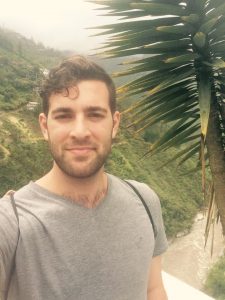CFHI student spotlight showcases students who have been and are working in one of our many programs . This is a feature where we highlight the students’ experience, if you would like to be featured please contact CFHI’s outreach director Keaton Andreas via email Keaton@cfhi.org.
Ross is involved in Pace University’s Physician Assistant program. He is interested in Women’s Health, Primary care/preventative medicine, and pediatrics. He selected the Reproductive Health rotation in Quito, Ecuador, because he is around spanish speaking patients back at home and wants to be able to speak to his patients in whatever language that makes them most comfortable.
- What school did/do you go to? Pace University’s Physician Assistant Program
- How did you hear about CFHI? It’s the international rotation provider my school works with.
- What areas are you interested in regarding medicine? Women’s Health, primary care/preventative medicine, pediatrics
- What program are you in and how did you determine that was the right one for you? Reproductive Health rotation in Quito Ecuador; I selected this program based on my interest in reproductive health and my desire to improve my medical Spanish. I live in NYC, where many patients only speak Spanish, and I want to be able to speak to my patients in whatever language makes them most comfortable.
- What were your expectations for the trip and how have those matched up with reality? My expectations were that the rotations would be largely observation with the opportunity to take histories and present patients in order to practice discussing patients in Spanish. My expectations have been surpassed. I have rotated through very different locations in OB/GYN, emergency medicine, and primary care, giving me exposure to a diversity of medical situations.
- What has been the best part of your experience so far? The best part is definitely the cultural immersion, which also happens to be the most difficult part. The discomfort of being in a totally new place is what forces you to adapt. It is absolutely the reason my Spanish has improved so much.
- Who are you working with? Depending on the location, I have mostly worked with the attendings. At one of the sites, I was matched with a resident, which was a nice opportunity, as they usually do more procedures.
- What is the overall goal of your program? My overall goal was to improve my medical Spanish.
- What is your overall goal? What do you want to accomplish through your program? Same ^ [Same answer as the previous question]
- What are some cultural things you have learned? The primary cultural difference I have noticed, at least medically, is that family is prioritized by patients over everything, including privacy. This is definitely different in the U.S. We learn that in order to get an honest history it is best to talk to the patient alone. That is often not an option here. It is interesting that people have such a level of comfort regarding their personal medical details, definitely surprising at times.
Be Sociable, Share!

